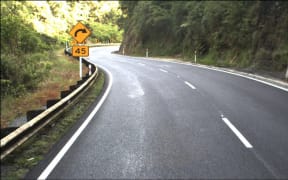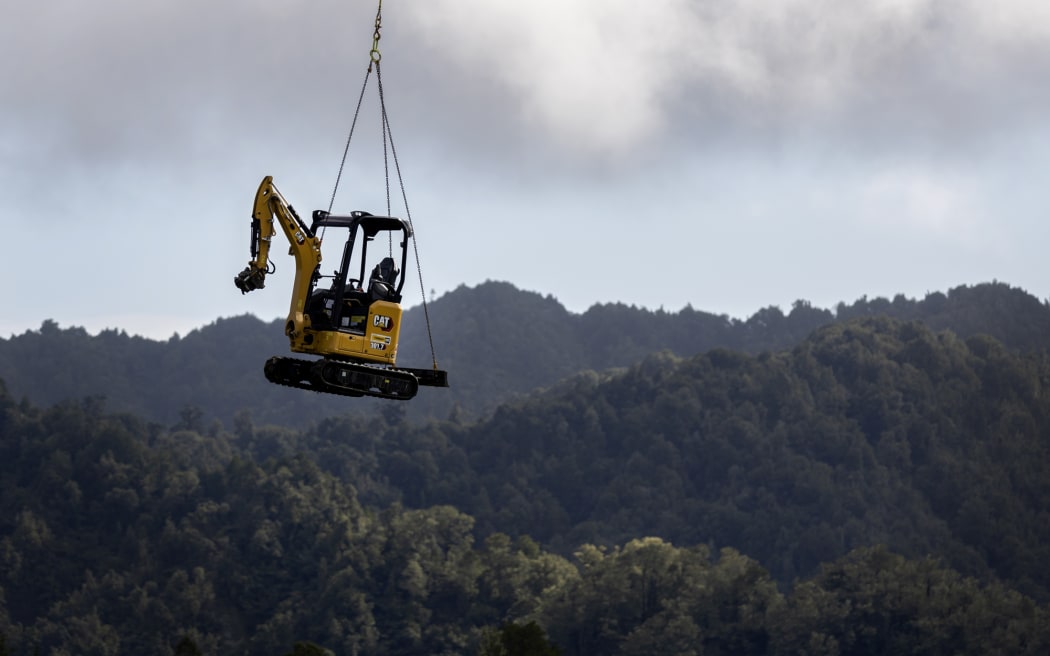
An excavator is helicoptered into a remote area of the Mt Messenger Bypass project site. File pic Photo: Supplied / Waka Kotahi / Andy Jackson
Transport Minister Simeon Brown is concerned about the significant cost of a pest control programme included in consent conditions for the Mt Messenger Bypass / Te Ara o Te Ata project in Taranaki.
The New Zealand Transport Agency / Waka Kotahi is committed to undertaking pest control over 3650 hectares of native bush - in perpetuity - as part of the $280 million project on State Highway 3.
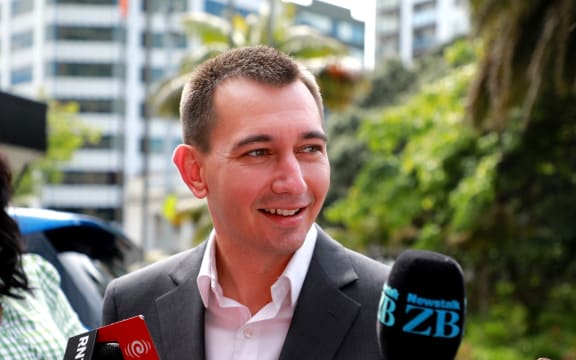
Simeon Brown Photo: Nick Monro / RNZ
The trapping programme has been estimated to cost more than $750,000 a year.
Brown was worried about the non-roading costs being imposed on the transport agency.
"I am concerned about the significant cost that is being applied as part of this project. It does have a significant effect on taxpayers."
He would rather Waka Kotahi could concentrate on its core business.
"My interest is that they can be focused on their sole job which is building roads. Ultimately, I want to see NZTA be able to build roads as efficiently as possible so New Zealanders can get where they are going quickly and safely.
"At the moment there is significant cost being imposed on them for a variety of reasons."
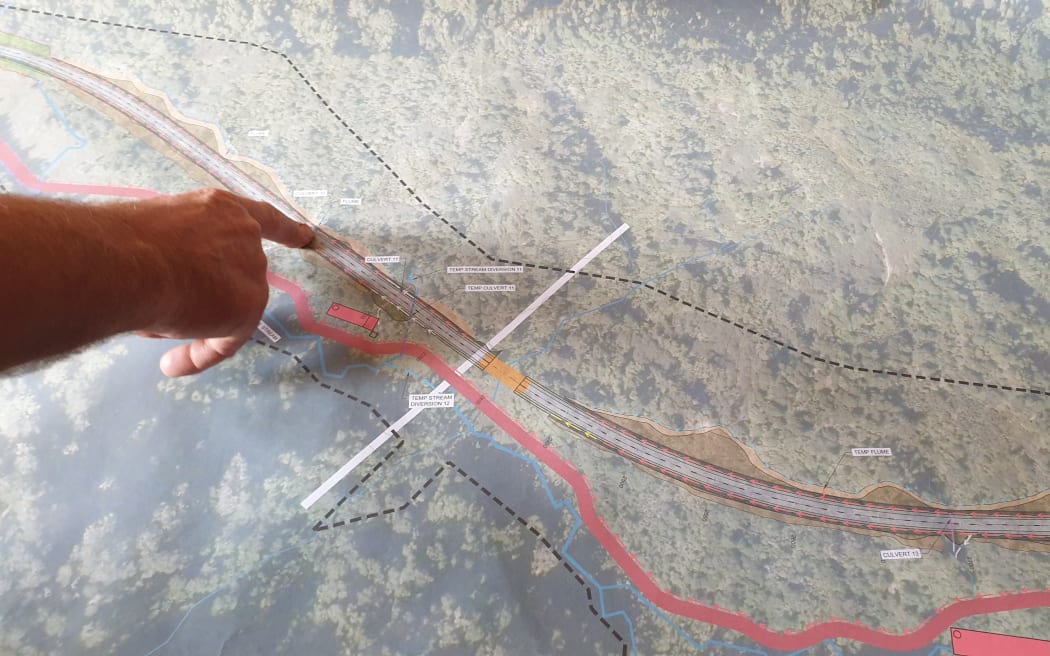
A sketch of the route of the Mt Messenger Bypass. Photo: RNZ / Robin Martin
Brown did not want to revoke consents already granted, but signalled the government would be looking at consenting processes as part of its review of the Resource Management Act.
NZTA said the pest control programme at Mt Messenger - which encapsulated Ngāti Tama land and conservation estate - was a condition of its consents.
"In this instance, it is a condition of consent which has been agreed with the support of landowners, DOC [Department of Conservation] and Ngāti Tama, that requires Waka Kotahi NZTA to fund pest management over 3650 hectares of land around the project area.
"One of the most important objectives during the construction process is to tread lightly on the land and leave the wider project area in much better condition for future generations."
The agency said pest management costs were not included in the project budget, but were being paid via the State Highway Maintenance and Operations budget which was funded through the National Land Transport Programme.
"It's important to note the NLTP fund covers costs associated with the project, including those to meet consent conditions, and other works, such as pest management."
An opponent of the bypass route, Marie Gibbs, said the money should be being spent elsewhere.
"It's coming out of the road maintenance budget money that has been appropriated by Parliament to be spent on potholes, clearing slips and emptying rubbish bins and things like that. Instead, it's being spent on pest control over a large tract of land that is not even part of the road reserve."
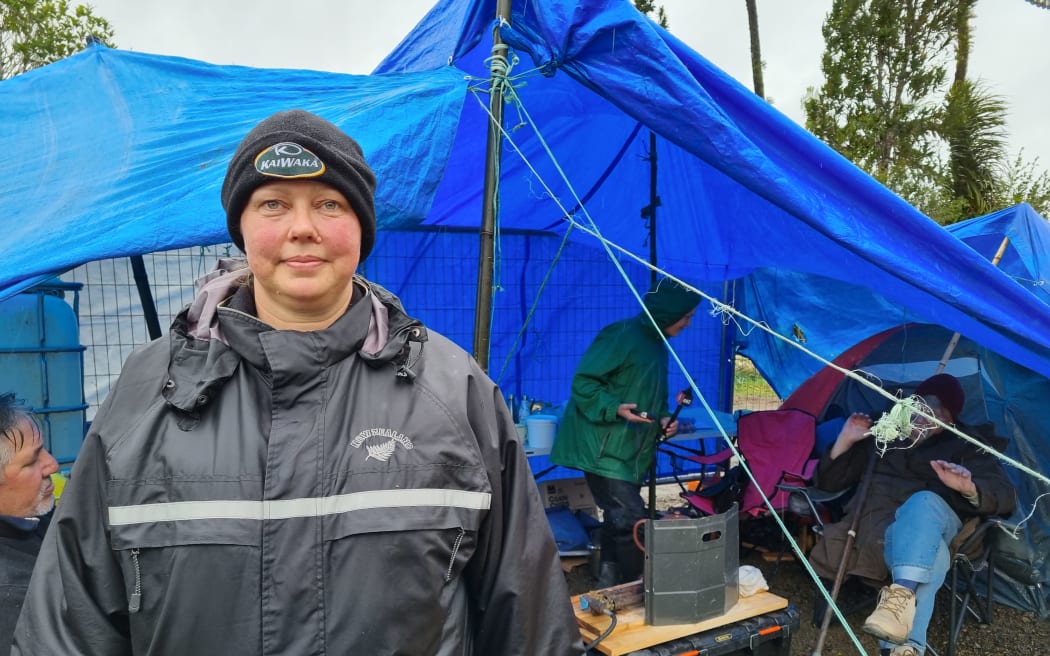
An opponent of the project, Marie Gibbs. Photo: RNZ / Robin Martin
Gibbs believed DOC was responsible for pest control on the conservation estate and Ngāti Tama land as part of the iwi's Treaty settlement.
Pest control was not imposed on NZTA as a condition of its consents for Te Ara o Te Ata; it was included in its application for consents, she said.
"They put up proposed conditions. The Environment Court can't impose conditions on NZTA; it can only approve conditions NZTA themselves propose.
"So, someone at NZTA must've given authority to put that proposed condition in the resource consent application."
Gibbs said if Waka Kotahi had chosen the less environmentally impactful option of upgrading the existing road it would not have had to design such a huge mitigation programme.
Ngāti Tama iwi member Conrad O'Carroll was in charge of its pest control efforts at Parininihi.
He said the NZTA funding was crucial to the iwi backing the Mt Messenger Bypass project.
"Without the mitigation for pest management and restoration of this large area of native forest Ngāti Tama wouldn't have agreed to it.
"It's extremely important. If we don't do pest management there's a lot of species that are going to disappear."
O'Carroll was part of a team cutting 250 kilometres of trapping tracks in the area and putting in thousands of traps and monitoring them.
"There's a lot of native species in this area. I suppose the main ones we are really focusing on and monitoring is the kōkako, that we've reintroduced, the kiwi, and they're both going in the right direction. Both those species are coming back quite strong.
"And the pest management was put in place to focus on protecting the bats. The bats are quite endangered in this area, in very low numbers and if we don't do something to protect that species we're going we're going to lose it completely."
NZTA is currently in the process of securing the last section of privately owned land it required for the project through the Public Works Act.
It said once that was acquired it would take four years to complete the Mt Messenger Bypass / Te Ara o Te Ata.


